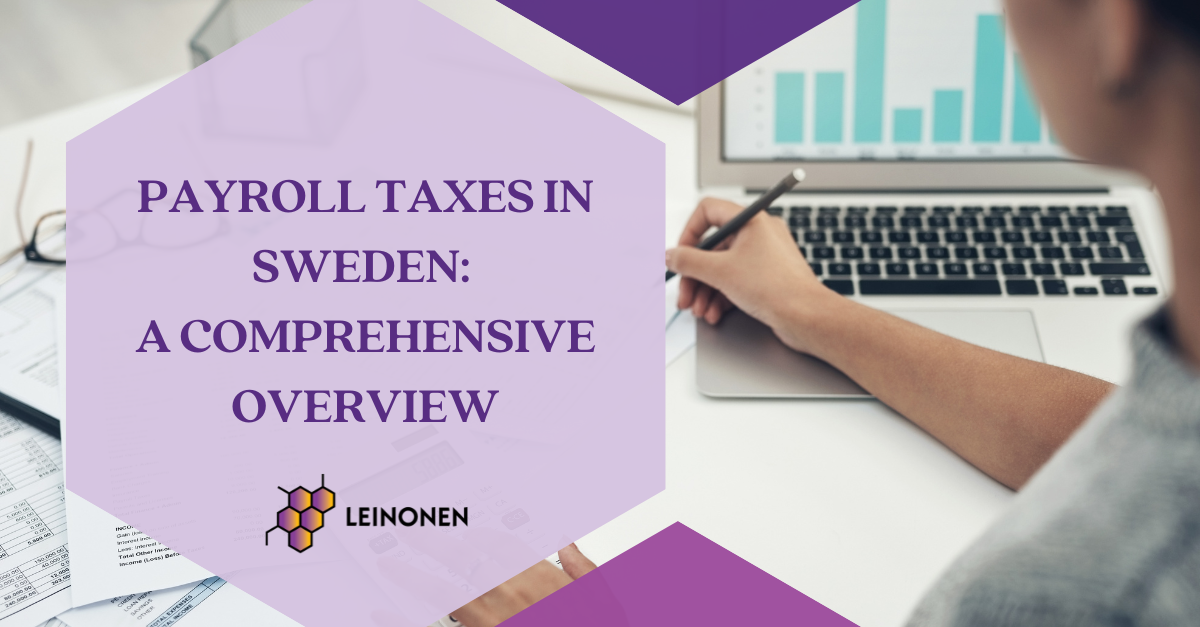Payroll taxes play a significant role in the functioning of any country’s economy. They help fund various social welfare programs and services provided by the government. In Sweden, payroll taxes are calculated based on several key factors, including salary calculations, hours worked, vacation days, and other exceptions such as sickness or parental leave.
The total cost of an employee in Sweden consists of cash costs, future cash costs, and other indirect costs. Cash costs refer to the total compensation paid to the employee, including their salary and taxes paid. Future cash costs include provisions for pensions, vacation compensation, and insurance that will be due in the future. Other indirect costs are expenses related to the employee, such as workplace benefits or training.
Unlike some countries, Sweden does not have a legal minimum salary. Instead, minimum salaries are determined through labor unions and collective bargaining agreements. The specific minimum wage varies depending on the relevant collective bargaining agreement.
Overtime regulations in Sweden
Overtime regulations in Sweden are governed by the “Arbetstidslag (1982:673)” law. The regular work time is typically 40 hours per four weeks, although this can be modified by a collective bargaining agreement or contract. Overtime is defined as time worked in excess of regular work time.
Employers can impose regular overtime up to 50 hours per month or 200 hours per year. Additionally, in special circumstances, employers may impose an extra 150 hours of overtime per year. However, it is worth noting that in practice, overtime rules are not always strictly enforced, especially for white-collar positions.
Regarding work on public holidays, Sweden has 12 public holidays defined by the “Lag (1989:253) om allmänna helgdagar” law. Sundays also count as holidays. While there is no law prohibiting work on holidays, employers must abide by working time limitations. The specific regulations for work on holidays can be determined through collective bargaining agreements or contracts.
Employee benefits and how the tax should be calculated.
Employee benefits in Sweden are subject to contractual agreements between employers and employees. The general rule is that the value of the benefit is taxable, equivalent to income. However, for certain common benefits such as cars, fuel, travel, meals, and stock options, there are special rules set by the Tax Agency.
When it comes to additional benefits that employees can be provided with, the options are vast. Employers can choose to offer benefits like gym memberships, healthcare, access to parking spaces, and cleaning help. However, it is important to note that the value of these benefits is taxable, meaning they are subject to income tax and employers must make the necessary tax deductions for the employees. Employers also need to pay employer contributions on the value of the benefits.
Vacations and parental leave system
In terms of leave entitlements, employees in Sweden are entitled to 25 working days of annual vacation, equivalent to five weeks. Vacation pay is set at 12% of the employee’s gross salary. Employers are responsible for paying sick leave to employees for the first two weeks. Employees are not eligible for any compensation on the first day of sickness. Afterward, employers must compensate them for 13 days at 80% of their salaries.
Sweden also offers generous parental leave benefits. Parents are jointly guaranteed 480 days of paid parental leave per year, with at least 60 days reserved for each parent. The leave is paid at a rate consistent with most of their normal salaries. Additionally, fathers or mothers are entitled to 10 extra paid days off when a child is born or 20 days off if multiple children are born. However, it is important to note that parental leave is taxed as regular income.
Sweden has also implemented tax relief measures for key foreign personnel. Employees with specialized skills that are difficult to find in Sweden can receive a 25% reduction of taxable income, including any benefits and employer contributions to housing and living costs. This tax relief means that 25% of the compensation will be exempt from Swedish tax and social security charges during a five-year period. This measure aims to attract highly skilled workers from abroad and promote international talent exchange.
In addition, Sweden has entered into income tax treaties with 92 countries, including a treaty with the United States. These treaties help avoid double taxation and provide guidelines for the taxation of individuals or corporations with cross-border income. Sweden also has a totalization agreement with the United States regarding social security program coverage and contributions, ensuring that individuals who have worked in both countries are not subject to redundant social security payments.
Overall, payroll taxes in Sweden encompass various elements such as salary calculations, benefits, leave entitlements, and tax relief measures. Understanding these components is crucial for both employers and employees to ensure compliance with tax regulations and to make informed decisions regarding compensation and benefits.
In case of any questions on payroll taxes, it is always recommended to consult with a tax professional or the relevant authorities for the latest updates and guidance.





